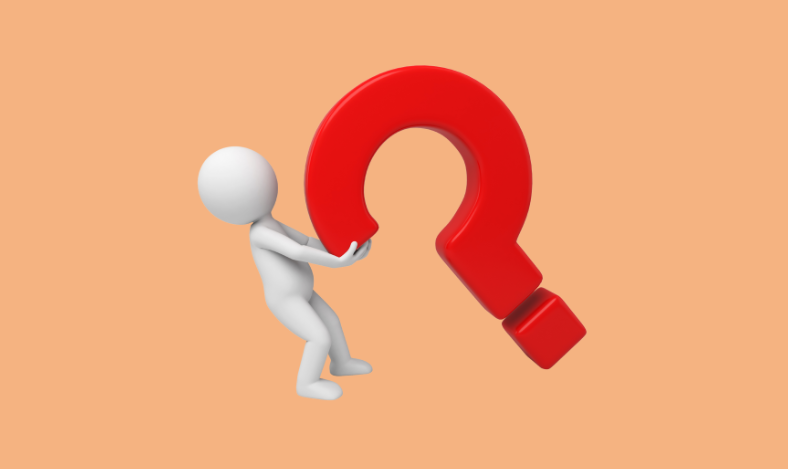Question
I recently met someone who described himself as a non-practicing Muslim. He mentioned being more inspired by Buddha and Hinduism, believing that these religions are better aligned with the nature of the region he comes from, such as Bangladesh.
I consider myself a practicing Muslim and hold firm belief in all the fundamental teachings, including the Day of Judgement. However, his view on the Day of Judgement was that it does not exist and that everything happens in this world through concepts like ‘Karma’. This intrigued me, and I found myself somewhat inclined towards his ideas. He also remarked that I am a Muslim only because I was born into a Muslim family, which is true.
That said, for the past fifteen years, I have been following Ghamidi Sahib’s work and have made a consistent effort to explore all the important aspects of Islam. However, I have never critically challenged Islam as a religion nor explored other religious traditions in depth.
This raises some questions for me: Does this mean I have a weak belief in Islam? Is it because I lack knowledge of world religions that I do not feel strong in my faith? Or am I simply a weak personality who is easily influenced by others who appear more knowledgeable?
Please guide me on how I can strengthen my faith.
Answer
Salaam,
Thank you for writing to us.
The subjects you both have discussed are inherently profound and demand thoughtful reflection, requiring us to embark on a lifelong journey of learning and seeking the truth. There is no fault in this endeavour. Remaining open to the possibility that our beliefs may be incorrect or only partially accurate is not a sign of weak faith. In fact, God directs the Prophet Muhammad (peace be upon him) to address the polytheists of Makka as follows:
قُلْ فَأْتُوا۟ بِكِتَـٰبٍۢ مِّنْ عِندِ ٱللَّهِ هُوَ أَهْدَىٰ مِنْهُمَآ أَتَّبِعْهُ إِن كُنتُمْ صَـٰدِقِينَ . فَاِنۡ لَّمۡ یَسۡتَجِیۡبُوۡا لَکَ فَاعۡلَمۡ اَنَّمَا یَتَّبِعُوۡنَ اَہۡوَآءَہُمۡ ؕ وَ مَنۡ اَضَلُّ مِمَّنِ اتَّبَعَ ہَوٰىہُ بِغَیۡرِ ہُدًی مِّنَ اللّٰہِ ؕ اِنَّ اللّٰہَ لَا یَہۡدِی الۡقَوۡمَ الظّٰلِمِیۡنَ
Tell them: Then bring some other Book from God which gives more guidance than both of these, I shall follow it, if you are truthful. Now if they do not accept this statement of yours, then know that they are only led by their desires. And who can be farther away from the truth than those who, without any guidance from God, have been led by their desires? God shall never guide such wrongdoers.
(Qur’ān 28:49)
This is an extraordinary instruction. Commenting on this verse, Ustaz Javed Ahmad Ghamidi writes in his exegesis, Al-Bayān:
The stance of every true seeker of guidance should precisely be what God has asked here from his messenger. The implication is that Muḥammad (sws) is not following the Torah and the Qur’ān because of any prejudice; his only urge is to seek the truth from wherever it can be obtained. If they can present a Book which provides more guidance than these two Books of God, they must; he will follow it without any reluctance.
ٓAt another place in the Qur’ān, we read:
قُلْ هَـٰذِهِۦ سَبِيلِىٓ أَدْعُوٓا۟ إِلَى ٱللَّهِ ۚ عَلَىٰ بَصِيرَةٍ أَنَا۠ وَمَنِ ٱتَّبَعَنِى ۖ وَسُبْحَـٰنَ ٱللَّهِ وَمَآ أَنَا۠ مِنَ ٱلْمُشْرِكِينَ
Tell them clearly: “This is my way; I call towards God with full understanding – me also and those who follow me. And [listen] God is exalted [from the filth of polytheism] and I am not from among the polytheists.
Qur’ān 12:108
This attitude exemplifies the essence of intellectual humility and sincerity in the pursuit of truth.
Further, while engaging with other perspectives, adopting a sceptical approach is unnecessary. Extreme scepticism often leads to dismissing everything unless proven, which can result in doubt and cynicism. Instead, a balanced approach is more reasonable—one that maintains trust in what is rational to accept while remaining open to re-evaluation when credible evidence arises. In our daily lives, trust is fundamental, and we rely on it without constant verification. For example:
- We trust our parents are who they claim to be unless there is evidence to the contrary.
- We trust that our food is safe to consume unless we detect something suspicious.
This trust is not blind but pragmatic, rooted in the absence of reasonable suspicion. Similarly, when approaching religious beliefs, one does not need to start from scepticism. Instead, inherited beliefs can be accepted as a starting point, with openness to critical evaluation.
Regarding your question on the comparison between Karma and the concept of the Day of Judgement: I do not believe that merely affirming one belief proves that the other is incorrect. Based on my study, the Qur’an offers a coherent and comprehensive framework for addressing existential questions such as the purpose of life, the nature of existence after death, and the foundation of morality. While the concept of Karma and the cyclical worldview of Hinduism or Buddhism may resonate with some, Islam presents what I find to be a more compelling explanation of human accountability and the justice embodied in the Day of Judgement. That said, a more detailed discussion on this topic can be reserved for the future or I shall try to address it in a separate article.
Lastly, I believe it is important to recognise that our journey towards understanding and truth is also part of our test in this life. According to the Qur’an, our actions—including how we approach and engage with questions of faith—carry significant weight. Indifference to fundamental questions that challenge our preconceived notions is not a viable option. Instead, pursuing the truth is essential.
I hope this response provides some clarity and guidance. Please feel free to reach out if you wish to explore any specific topic further.
Regards,
Mushfiq Sultan
Al-Mawrid










Leave a Reply